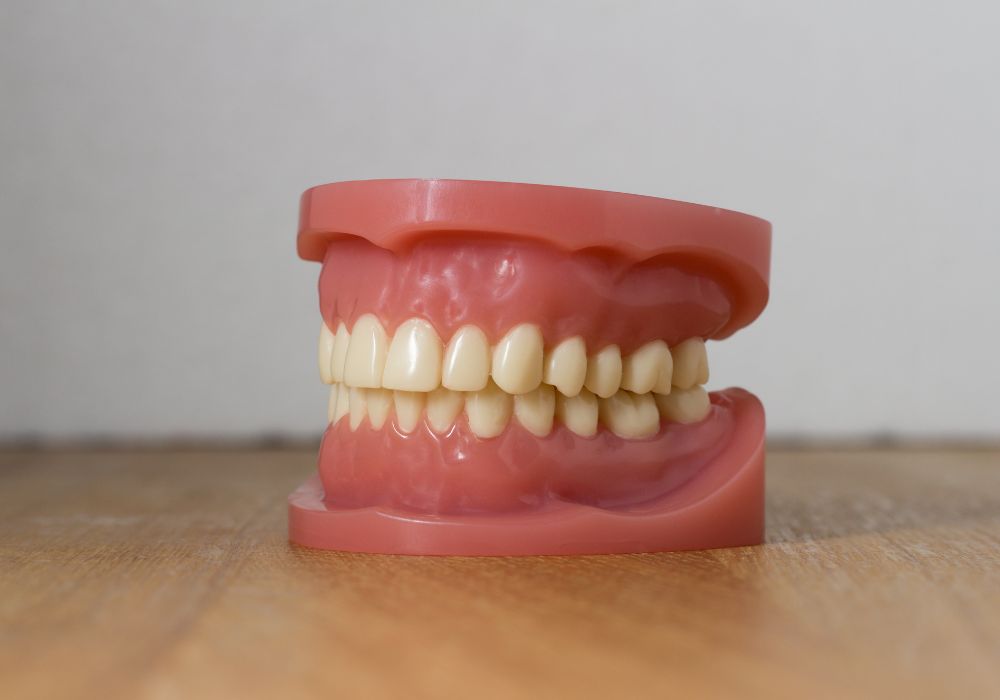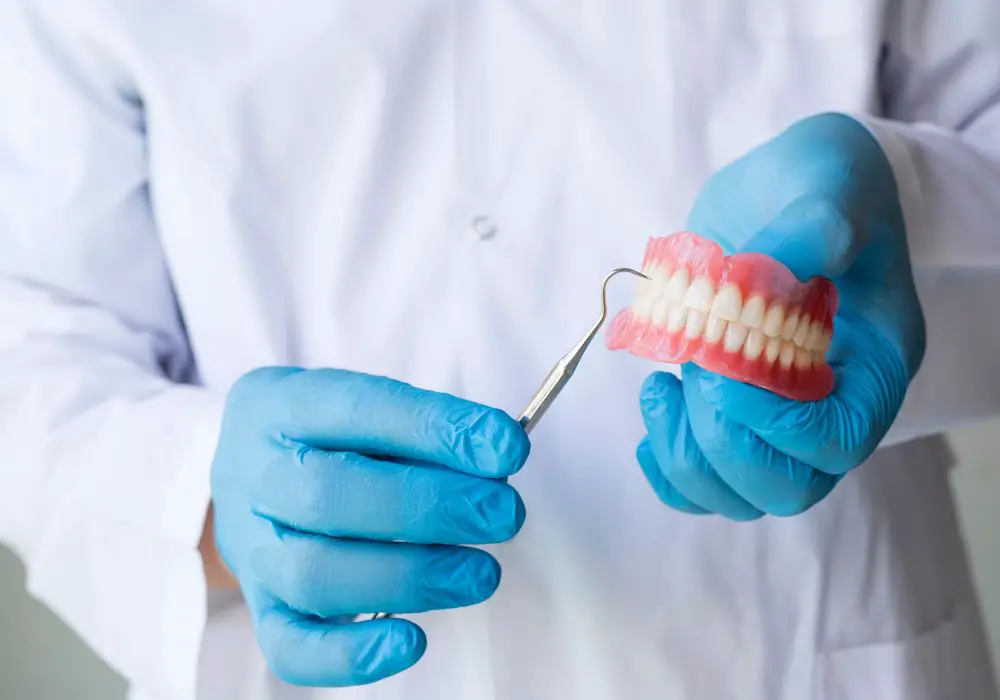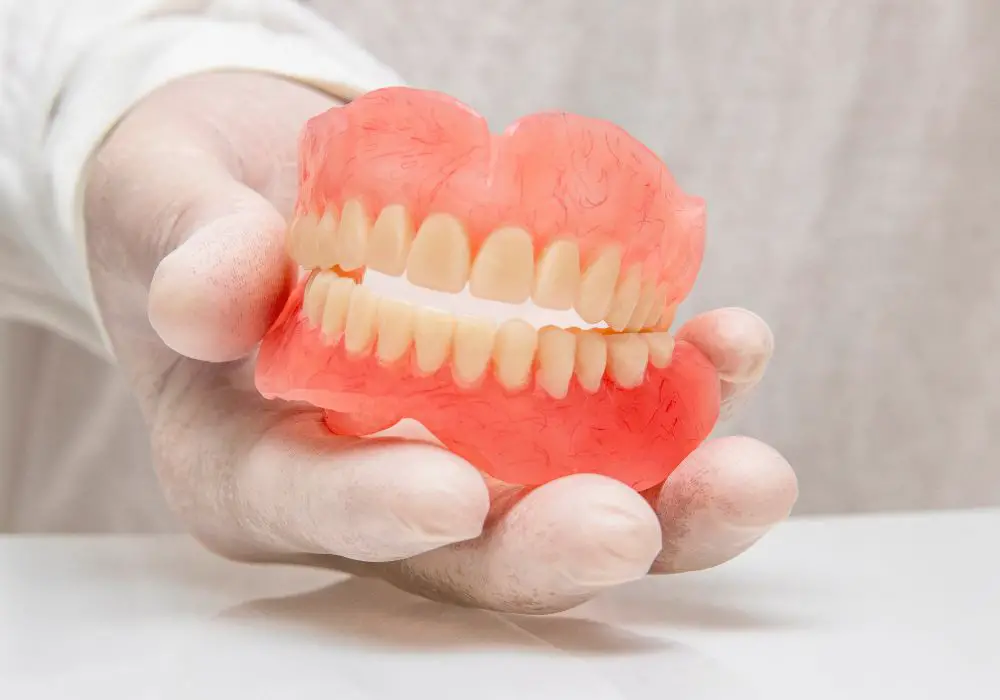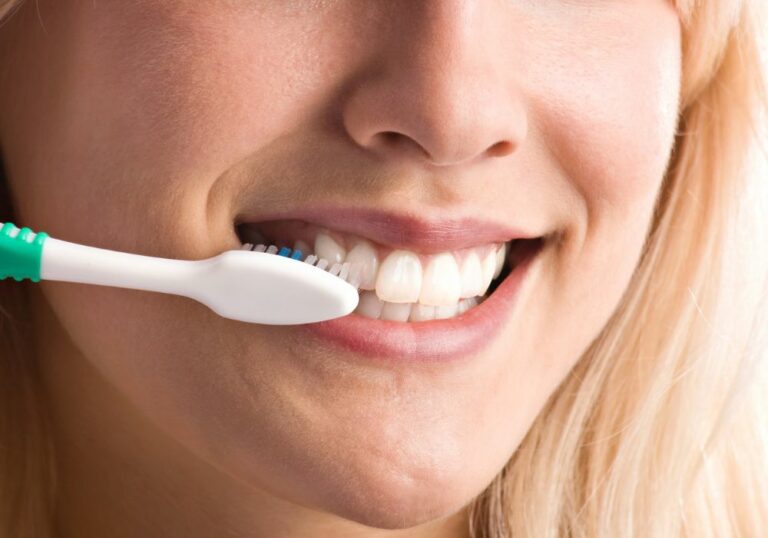Are you tired of removable dentures that shift or fall out of place? If so, you may be wondering if permanent false teeth are an option for you. Permanent dentures, also known as implant-supported dentures, are a popular alternative to traditional removable dentures.
Implant-supported dentures are attached to the jawbone via dental implants, providing a stable and secure fit. They look and feel like natural teeth, and there is no risk of them shifting or falling out. However, not everyone is a candidate for implant-supported dentures. Factors such as bone density and overall health must be taken into consideration before undergoing the procedure.
Understanding Permanent False Teeth

If you’re missing teeth, you may be considering getting permanent false teeth. Here’s what you need to know:
What Are Permanent False Teeth?
Permanent false teeth, also known as implant-supported dentures, are a type of denture that is anchored to your jawbone using dental implants. Dental implants are small titanium posts that are surgically placed into your jawbone, where they fuse with your natural bone over time. Once the implants have fused with your bone, your dentist can attach a set of false teeth to them.
Implant-supported dentures are a popular choice for people who are missing multiple teeth, as they provide a more stable and long-lasting solution than traditional dentures. With implant-supported dentures, you can eat, speak, and smile with confidence, knowing that your false teeth won’t slip or shift around in your mouth.
Types of Permanent False Teeth
There are two main types of implant-supported dentures: bar-retained dentures and ball-retained dentures.
Bar-Retained Dentures: With bar-retained dentures, a thin metal bar is attached to your implants and runs along the curve of your jawbone. Your denture is then attached to the bar using clips or other types of attachments.
Ball-Retained Dentures: With ball-retained dentures, each implant has a small metal ball on the end of it that fits into a socket on the denture. This allows the denture to snap into place securely.
Both types of implant-supported dentures have their own unique advantages and disadvantages. Your dentist can help you determine which type of denture is right for you based on your individual needs and preferences.
Overall, implant-supported dentures are a great option for people who are missing teeth and want a more permanent solution than traditional dentures. With the right care and maintenance, your implant-supported dentures can last for many years, giving you a beautiful, healthy smile.
Benefits of Permanent False Teeth
If you are missing teeth, permanent false teeth can provide many benefits. Here are some of the advantages of getting permanent false teeth:
Improved Aesthetics
One of the most obvious benefits of permanent false teeth is that they can improve your appearance. Missing teeth can make you feel self-conscious and affect your confidence. But with permanent false teeth, you can have a complete set of teeth that look and feel natural. You can choose the size, shape, and color of your new teeth to match your existing teeth or create a whole new smile.
Enhanced Functionality
Permanent false teeth can also improve your ability to eat and speak. Missing teeth can make it difficult to chew certain foods, and can also affect your speech. With permanent false teeth, you can enjoy a wider variety of foods and speak more clearly.
Long-Term Durability
Another benefit of permanent false teeth is their durability. Unlike removable dentures, which can become loose or damaged over time, permanent false teeth are designed to last for many years. They are made from high-quality materials that are resistant to wear and tear, and they are custom-fit to your mouth for maximum comfort and stability.
In summary, permanent false teeth can provide many benefits, including improved aesthetics, enhanced functionality, and long-term durability. If you are missing teeth, talk to your dentist about whether permanent false teeth are right for you.
Procedure for Getting Permanent False Teeth

If you are considering getting permanent false teeth, it is important to know the procedure involved. Here are the steps you can expect to go through:
Initial Consultation
The first step in getting permanent false teeth is to schedule an initial consultation with a dentist. During this appointment, the dentist will examine your mouth and take X-rays to determine if you are a good candidate for permanent false teeth. They will also discuss your options for the type of permanent false teeth that will work best for you based on your needs and budget.
Procedure Steps
Once you have decided to move forward with permanent false teeth, the procedure usually involves the following steps:
- Extraction: If you still have teeth that need to be extracted, the dentist will remove them first.
- Implant Placement: The dentist will then place dental implants in your jawbone. These implants will serve as the anchors for your permanent false teeth.
- Healing: After implant placement, you will need to wait several months for the implants to fuse with your jawbone. This process is called osseointegration and is necessary to ensure the implants are secure and stable.
- Abutment Placement: Once the implants have fused with your jawbone, the dentist will place abutments on top of them. These abutments will connect the implants to your permanent false teeth.
- Permanent False Teeth Placement: Finally, the dentist will attach your permanent false teeth to the abutments. They will make any necessary adjustments to ensure a comfortable and secure fit.
Aftercare and Recovery
After your permanent false teeth are in place, you will need to take care of them just like you would natural teeth. This includes brushing and flossing regularly and visiting your dentist for checkups and cleanings. It is also important to avoid hard or sticky foods that could damage your false teeth or the implants supporting them.
In terms of recovery, you may experience some discomfort and swelling after the procedure. Your dentist will provide you with instructions on how to manage any pain or discomfort and may prescribe pain medication if necessary. You will also need to follow a soft food diet for a few days after the procedure to allow your mouth to heal.
Overall, getting permanent false teeth is a multi-step process that requires careful planning and consideration. However, with proper care and maintenance, permanent false teeth can provide a long-lasting and natural-looking solution for missing teeth.
Potential Risks and Complications
When it comes to permanent false teeth, there are potential risks and complications that you should be aware of before making a decision. These risks can vary depending on the type of false teeth you choose and your individual circumstances. In this section, we’ll discuss some of the most common risks and complications associated with permanent false teeth.
Surgical Risks
One of the biggest risks associated with permanent false teeth is the surgical procedure required to implant them. Like any surgery, dental implant surgery comes with some risks. These risks can include infection at the implant site and injury or damage to surrounding structures, such as other teeth or blood vessels. However, these risks are rare and usually minor.
Long-Term Complications
While the initial surgical procedure for permanent false teeth is generally safe, there are potential long-term complications that you should be aware of. For example, some people may experience bone loss around the implant site over time. This can lead to the implant becoming loose or even falling out.
Another potential complication is implant failure. While this is relatively rare, it can occur if the implant doesn’t fuse properly with the jawbone. This can result in discomfort, difficulty chewing, and even the need for the implant to be removed.
Finally, there is the risk of complications with the false teeth themselves. For example, the false teeth may become loose or damaged over time, requiring repair or replacement. Additionally, some people may experience allergic reactions to the materials used in the false teeth or crown.
It’s important to note that while there are potential risks and complications associated with permanent false teeth, these risks are typically low. With proper care and maintenance, most people are able to enjoy the benefits of permanent false teeth without experiencing any significant problems.
Cost and Insurance Considerations
When considering permanent false teeth, cost and insurance coverage are important factors to keep in mind. Here are some things to consider:
Average Cost of Permanent False Teeth
The cost of permanent false teeth can vary widely depending on several factors, including the materials used, the number of teeth being replaced, and the location of the dental practice. On average, the cost of permanent false teeth ranges from $15,000 to $28,000 for a single arch (upper or lower denture). If you need to replace all of your teeth, you can expect to pay double that amount.
It’s important to note that these costs are for the dentures themselves and do not include additional expenses such as fitting, adjustments, or maintenance. It’s also worth considering the long-term costs of maintaining your false teeth, such as cleaning solutions, repairs, and replacements.
Insurance Coverage
Dental insurance may help cover some of the costs of permanent false teeth, but coverage can vary widely depending on your plan and provider. Some plans may cover a portion of the cost, while others may not cover it at all.
Before getting permanent false teeth, it’s important to check with your dental insurance provider to see what is covered and what is not. You may also want to consider alternative financing options, such as payment plans or medical credit cards, to help cover the cost of your dentures.
Overall, the cost of permanent false teeth can be significant, but many people find the benefits of having a permanent, natural-looking set of teeth to be well worth the investment.
Alternatives to Permanent False Teeth

If you are considering getting false teeth, you may be wondering if permanent false teeth are your only option. The good news is that there are alternatives to permanent false teeth that you can consider. Here are two common alternatives:
Removable Dentures
Removable dentures are a popular alternative to permanent false teeth. They are prosthetic teeth that can be removed from your mouth for cleaning and maintenance. They are typically made of acrylic or porcelain and are designed to look and feel like natural teeth.
One of the benefits of removable dentures is that they are less expensive than permanent false teeth. They are also easier to repair and replace if they become damaged or worn over time. However, they may not be as comfortable or stable as permanent false teeth, and they may require more maintenance and care.
Dental Bridges
Dental bridges are another alternative to permanent false teeth. They are prosthetic teeth that are anchored to your existing teeth or dental implants. They are designed to fill in the gaps left by missing teeth and restore your smile and bite.
One of the benefits of dental bridges is that they are more stable than removable dentures. They also do not require as much maintenance and care as removable dentures. However, they may be more expensive than removable dentures, and they may not be suitable for everyone.
When considering alternatives to permanent false teeth, it is important to consult with your dentist to determine which option is best for you. Your dentist can help you weigh the pros and cons of each option and make an informed decision based on your needs and preferences.
Frequently Asked Questions
How long do permanent false teeth last?
Permanent dentures can last for many years with proper care and maintenance. However, the lifespan of your dentures will depend on various factors such as the quality of the dentures, your oral hygiene habits, and the amount of wear and tear they receive. On average, permanent dentures can last anywhere from 5 to 15 years.
What are the disadvantages of permanent dentures?
One of the main disadvantages of permanent dentures is that they can be costly compared to traditional dentures. Additionally, permanent dentures may require more dental appointments for fittings and adjustments. Moreover, some people may find that permanent dentures are not as comfortable as traditional dentures.
Can permanent dentures be removed?
Permanent dentures are designed to be a long-term solution for missing teeth, so they cannot be removed like traditional dentures. However, in some cases, your dentist may need to remove the dentures for maintenance or repair.
Do permanent dentures hurt?
It is normal to experience some discomfort or soreness when you first get your permanent dentures. However, this discomfort should subside as your mouth adjusts to the dentures. If you experience persistent pain or discomfort, you should contact your dentist.
Are permanent dentures covered by insurance?
The coverage for permanent dentures varies depending on your insurance plan. Some insurance plans may cover the cost of permanent dentures, while others may only cover a portion of the cost. It is important to check with your insurance provider to determine your coverage.
Can you get permanent dentures with bone loss?
If you have experienced bone loss in your jaw, you may still be a candidate for permanent dentures. Your dentist will evaluate your oral health and determine if you are a good candidate for permanent dentures or if another treatment option, such as dental implants, may be more suitable for you.






